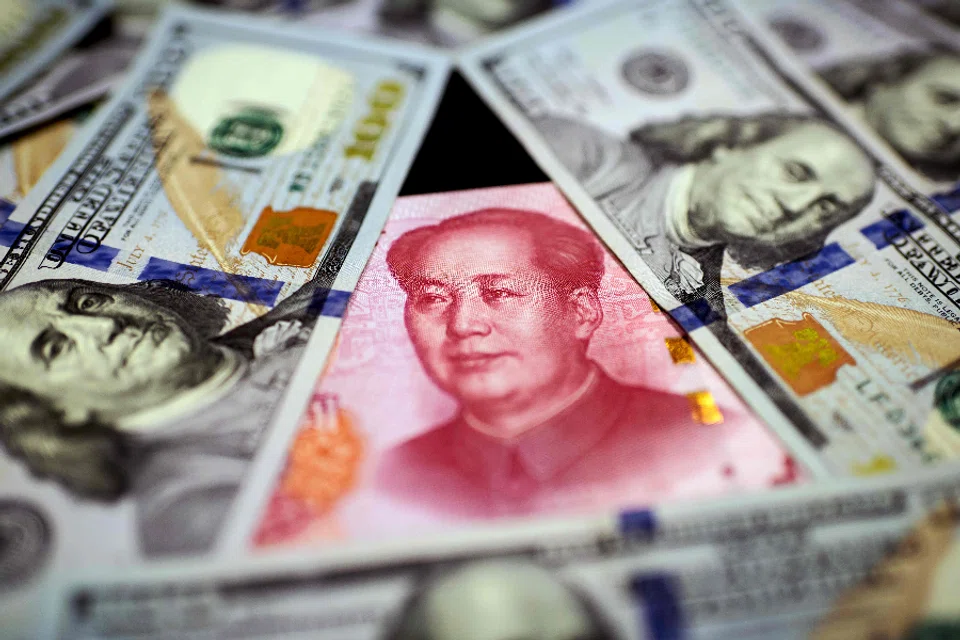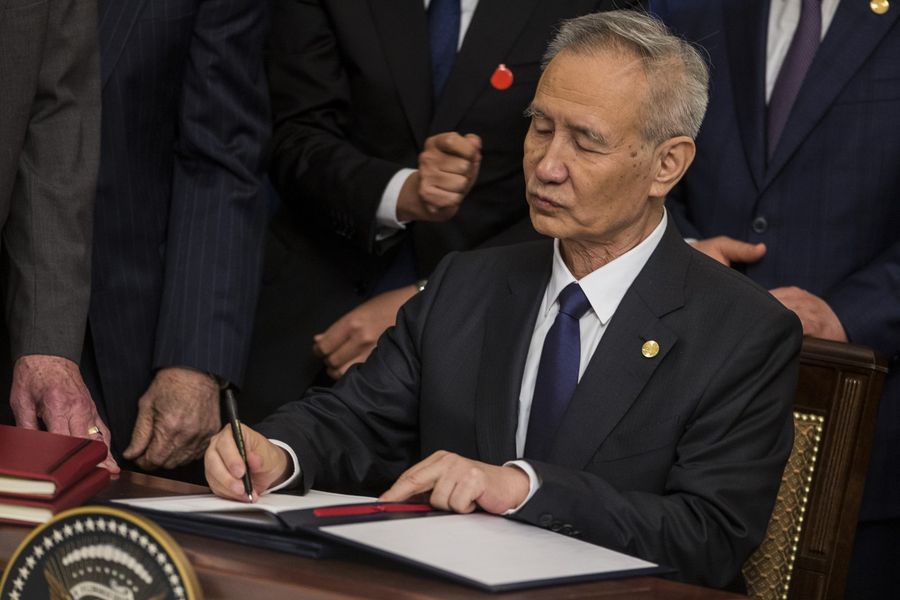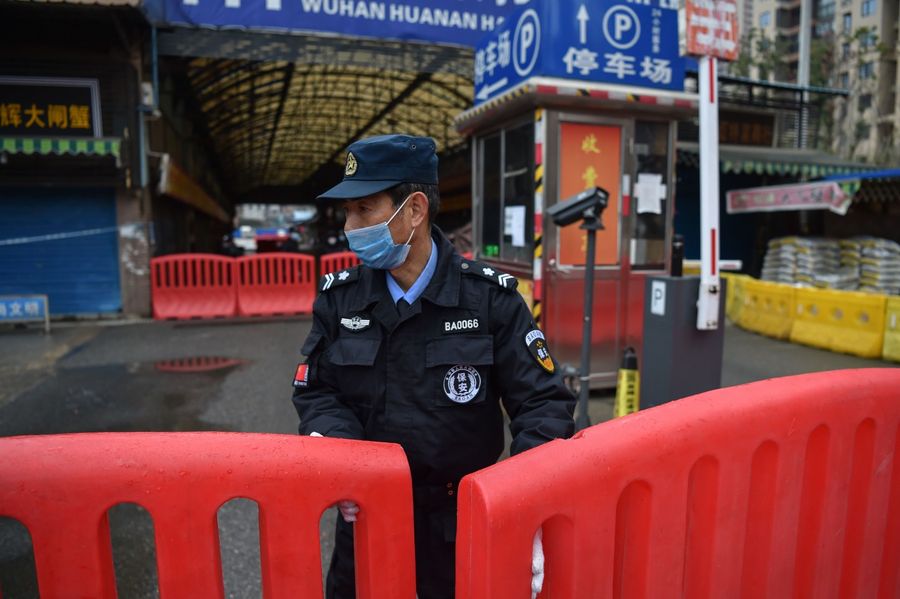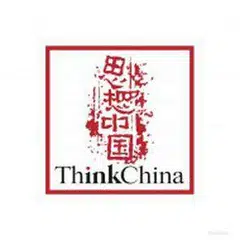Why would China agree to such a "one-sided" deal?

About a year and a half into the China-US trade war, a phase one trade deal has finally been signed recently. It seems appropriate for us to reflect now on the roller-coaster ride taken by the two countries to come to this point. The lessons to be learnt are not without implications for the present and the future.
As far as reverberations are concerned, the concluded round of trade conflict never made much of a splash in America's society and market. The Trump administration engaged in negotiations with multiple countries over trade disputes during this time, which were publicly reported in the US. The sensitive stock market at Wall Street got a little jittery at times. And that was it. In America, the spat was just an economic and trade issue.
Clear as day, the so-called phase one trade deal is really America's list of demands for China to correct its own deviations and wrongs... Had the Chinese publicly explained what all this was really about right from the beginning, they would not have to end up where they are now, embarrassed and being pushed around.
It is a very different picture for China. In the preliminary stage of the trade war, every pompous idea from the so-called rise of a world power, deep rivalry between China and the West, the selling of US debt in bulk, an embargo on rare earth elements, to a reprise of the Battle of Shangganling (the Battle of Triangle Hill) or Chairman Mao's "protracted war" was mobilised. China postured as if it was going to play chicken with the US and fight till only one of the two would emerge triumphant. Yet, according to the phase one trade agreement, the US will basically maintain the existing, increased tariffs on China, while China must purchase about US$200 billion of goods from America within two years. The agreement contains 82 stipulations on what China shall do, but merely three stipulations on what the US shall do.
China being called to heel?
Clear as day, the so-called phase one trade deal is really America's list of demands for China to correct its own deviations and wrongs. Its direct purpose is to achieve equality of trade balance between the two countries. Had the Chinese publicly explained what all this was really about right from the beginning, they would not have to end up where they are now, embarrassed and being pushed around.
In other words, the downside of a voluminous emergent market is just as prominent as its strengths.
And why would China agree to such a heavily "one-sided" deal? What happened to the advantage of its enormous market? The competitive edge of its cheap export processing? In the early part of the trade war, weren't there claims that China had no serious need for American goods - at worst, its people could just tighten their belts a little - whereas the Americans could not do without Chinese commodities, and would even have nowhere to buy their trousers from?

Yet the opposite is now proven to be true. The Chinese economic structure is heavily dependent on the outward flow of processed exports, especially exports to the US. American commodities that find no buyer in China can still be sold to Japan and Mexico. Furthermore, the processing and import of American clothing are not necessarily reliant on China, but can be shifted to Vietnam and elsewhere in Southeast Asia.
In other words, the downside of a voluminous emergent market is just as prominent as its strengths. Such a market does have unlimited potential if it functions according to proper patterns and rules, and gets itself integrated organically into the globalised industrial chain. If, however, it goes against established patterns and rules, and thus runs up against sanctions or other counteractions from the international mainstream market, the crisis it falls into would also be very extensive and profound.
Since the beginning of the early modern age, the Chinese people have tended to comfort themselves before the rest of the world by harping on how vast and abundant their motherland is. As expected from such misguided thinking of a typical agrarian civilisation, the presupposition that sheer quantity suffices to make up for quality runs aground time and again.
With the China-US trade war at a break now, the dramatic dissonance between China's initial posturing and the final outcome is very telling. It shows that China has significantly misjudged the situation. A misjudgement of any objective situation comes about usually because of two major reasons. The first is that the information gathered and the big picture derived from it are not comprehensive and accurate enough, leading to a misinformed judgement. After all, as the old sayings go, one who "looks at the sky from within a well" gets only a limited view, and "a single leaf before one's eyes suffices to block the sight of the Taishan Mountain". The second cause is that, even when the information and the big picture are clear, one's way of thinking and standpoint may be seriously at odds with how things work in reality, such that one can still arrive at an incorrect conclusion despite having complete, accurate data.
What we have here is yet another textbook example of the incompetence and dereliction of duty typical of the Chinese government's administrative departments.
On a deeper level, there is still a yawning chasm between the de facto Chinese culture now and Western mainstream culture in terms of modernised thinking, leadership quality, the general social environment, experimentation, exploration, innovation, creativity, procedural optimisation and so on. In all these areas, China is still severely lagging behind.
China's classical agrarian civilisation is basically a complete stranger to modernisation, not to mention the fact that the country has gone through a continuous succession of wars, unrest, historical inertia and wasted efforts over the last 180 years, in which multiple generations are mired. Rarely has the country been able to proceed with foundational culture-building, societal evolution, as well as scientific research and development in any solid, genuine manner.
Take social management for example. There is always so much strenuous management of things that ought not to be meddled with, while what truly needs to be managed suffers from neglect and sloppiness. With society being run with such serious misalignment, one can only expect absurdity and catastrophe. Look at Wuhan's Huanan Seafood Wholesale Market, which is making the news now. Forget about the perennial issues of quality and integrity; the market has become ground zero for a fatal coronavirus, not only causing public fear in the Spring Festival, but also spreading its negative impact to countries and territories beyond mainland China's borders. What happened to the day-to-day monitoring of food safety? Environmental hygiene for preventing the spread of infectious diseases? The checks on the legality of business operations? What we have here is yet another textbook example of the incompetence and dereliction of duty typical of the Chinese government's administrative departments.

Quite plainly, smallholding peasantry-style boasting or inflation of self-importance is useless. It serves only to fuel self-deception and incur the ridicule of all who can see clearly. Catching up with and surpassing the West is not just a matter of having certain hardware or other impressive objects. It is not about possessing great wealth or big guns. What's pivotal is how far the core of the civilisation and its overall system have evolved. The fundamental issue is that the country's infrastructure needs to be built up, the quality of its entire society needs to be elevated, robustly and properly. Failure here shows when going up against truly modernised, advanced civilisations. Without improvement at this level, China would only neglect to cover all its bases, fall into disarray, and suffer one defeat after another.
